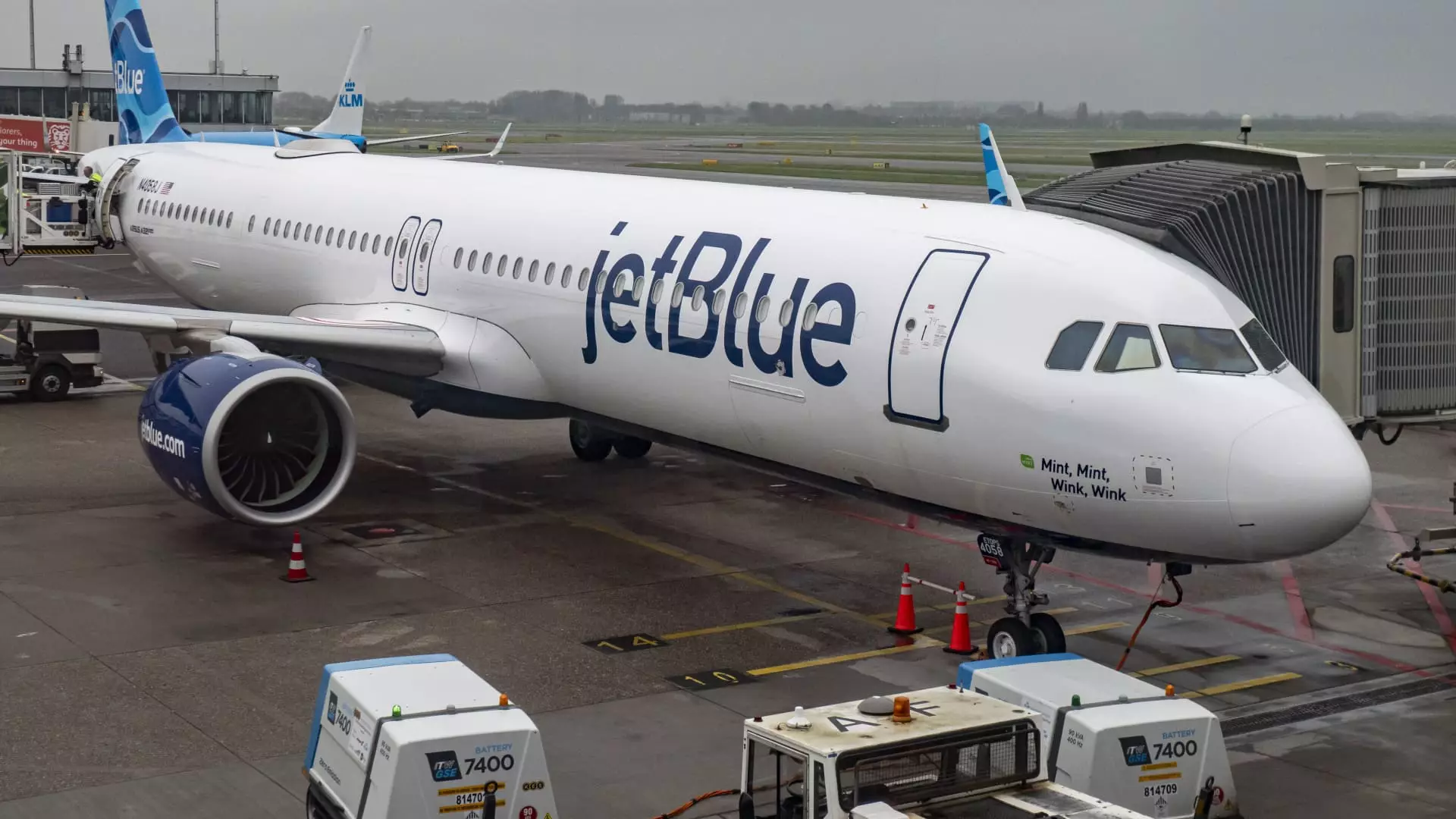JetBlue Airways is gearing up for a transformative shift in its service lineup, aiming to introduce domestic first-class seating in 2026. This strategic decision is part of a broader initiative to attract higher-paying customers and return the airline to profitability. With the airline’s president, Marty St. George, hinting at two to three rows of enhanced seating on planes lacking the premium Mint class, JetBlue is taking strides toward reinventing the flying experience for its customers.
Historically, JetBlue has operated with a unique ethos, aspiring to deliver quality service at competitive prices compared to larger, legacy airlines. However, as the market evolves, so does the need to cater to an increasingly affluent travel segment. This initiative reflects a keen understanding that today’s passengers are not just seeking a seat; they desire a richer travel experience, even on shorter domestic routes.
Since launching its acclaimed Mint service—a first-class, lie-flat seating arrangement—over a decade ago, JetBlue has continually sought ways to expand offerings to enhance passenger comfort. The playful terms “mini-Mint” and “junior Mint” had previously circulated within the company’s strategy meetings, underscoring the ambition to create a product that meets the demand for greater space and amenities on domestic flights that may not justify the full Mint experience.
St. George acknowledged the limitations of replicating Mint’s layout on shorter flights, prompting the need for an innovative solution. This reflects a deep-rooted recognition that the airline industry must evolve through experimentation and adaptability to stay relevant in a competitive landscape. By pivoting to provide a more comprehensive first-class offering, JetBlue aims to keep its rivals on their toes while simultaneously catering to the growing consumer preference for premium products in the aviation sector.
JetBlue’s recent initiatives come against a backdrop of challenges, most notably the blocking of its proposed acquisition of Spirit Airlines and a judicial ruling deeming its partnership with American Airlines anticompetitive. These setbacks have spurred the airline to refine its focus on core markets in Florida and the Northeast, showcasing a strategic pivot that prioritizes sustainability and operational efficiency.
As the airline reassesses its routes and market engagements, it is also undertaking significant cuts of unprofitable flights. This reflects a broader trend in the airline industry post-pandemic, where profitability has taken precedence over expansion for many carriers. An upcoming flight service from Boston to Madrid illustrates JetBlue’s attempt to maintain a global expansion strategy despite the challenges faced in domestic competition.
JetBlue’s move is in tandem with a notable industry trend where airlines are increasingly focusing on enhancing the premium experience for travelers. Post-pandemic, a growing number of leisure travelers have demonstrated a willingness to invest in more spacious seating and additional amenities, such as airport lounge access. This cultural shift marks a decisive change in consumer expectation, prompting airlines like JetBlue to rethink their product offerings.
In a similar vein, Alaska Airlines has announced plans to assess its premium seating and enhance its fleet, positioning itself for a global expansion following a merger with Hawaiian Airlines. The synergy of these strategic initiatives across different airlines emphasizes a collective pivot toward bolstering revenue through enhanced offerings.
As JetBlue prepares for the 2026 launch of its domestic first-class seats, the airline is also taking bold steps toward establishing its first lounges, further augmenting the customer experience. The vision outlined by St. George signals a commitment not only to recovery but to reinvention in a post-pandemic world. By capitalizing on the growing demand for premium travel options, JetBlue aims to re-establish itself as a market leader focused on providing exceptional value to its customers while enhancing its bottom line.
JetBlue’s ambitious plans for a domestic first-class offering could serve as a significant pivot point for the airline, potentially redefining how it competes in the crowded airline landscape. With its innovative approach and recognition of changing market dynamics, JetBlue is poised to meet the evolving demands of today’s travelers while navigating the complexities of the industry.

